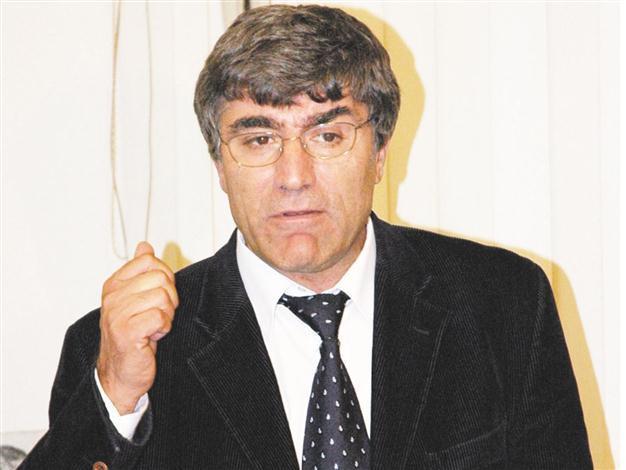Dink lawyers file charges against 24
ISTANBUL

Turkish- Armenian Journalist Hrant Dink was shot in front of his office in 2007. DAILY NEWS photo, Hasan ALTINIŞIK
Lawyers for murdered Turkish-Armenian journalist Hrant Dink have requested that the Istanbul Deputy Chief Prosecutor’s Office file a criminal case against 24 public servants for their alleged role in the 2007 killing.“If [police informant] Erhan Tuncel was found not guilty and could be acquitted, and if he did not take part in the crime, then there are other guilty [parties] out there,” Cem Halavurt, one of the Dink family’s lawyers, told the Hürriyet Daily News.
The public servants in question include Muammer Güler, former Istanbul governor and a deputy for the ruling Justice and Development Party (AKP), Celalettin Cerrah, who was Istanbul police chief at the time but has since been promoted to the post of Osmaniye governor in southern Turkey, as well as Ramazan Akyürek, who was serving as the head of police intelligence at the time.
“The aforementioned civil servant suspects ... have committed the crime of ‘intentional murder through negligent conduct’ by not fulfilling their obligation to prevent Hrant Dink’s assassination by the armed organization that committed the murder, and by not taking him under their protection,” read the Dink family’s lawyers’ petition.
Both Cerrah and Güler refused to comment to the Daily News on the matter.
“We are aware of the presence of the managers and members of the organization that committed the Dink murder among the Trabzon Provincial Gendarmerie Command, the Istanbul and Trabzon Provincial police departments [and] the Police Department Intelligence Branch Presidency staff. We know that all these relations will come to light if an effective investigation is conducted,” the petition said.
Authorities did not give permission for an investigation to be launched against the public servants in question, the lawyers said in the petition. An appeal was consequently brought before the European Court of Human Rights following the exhaustion of domestic judicial alternatives.
















